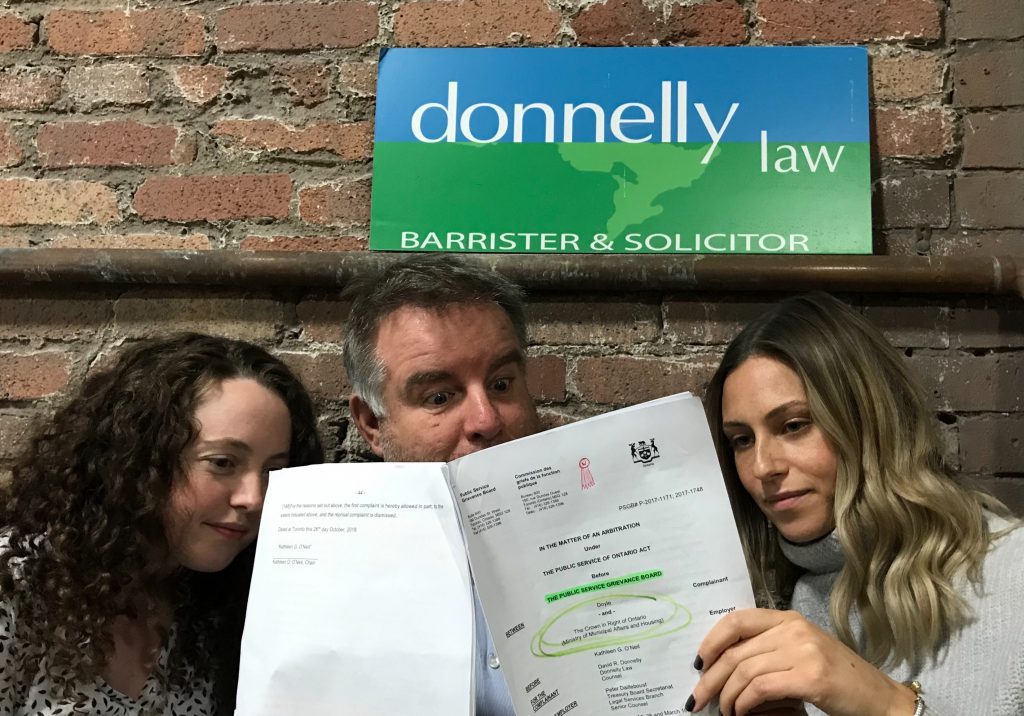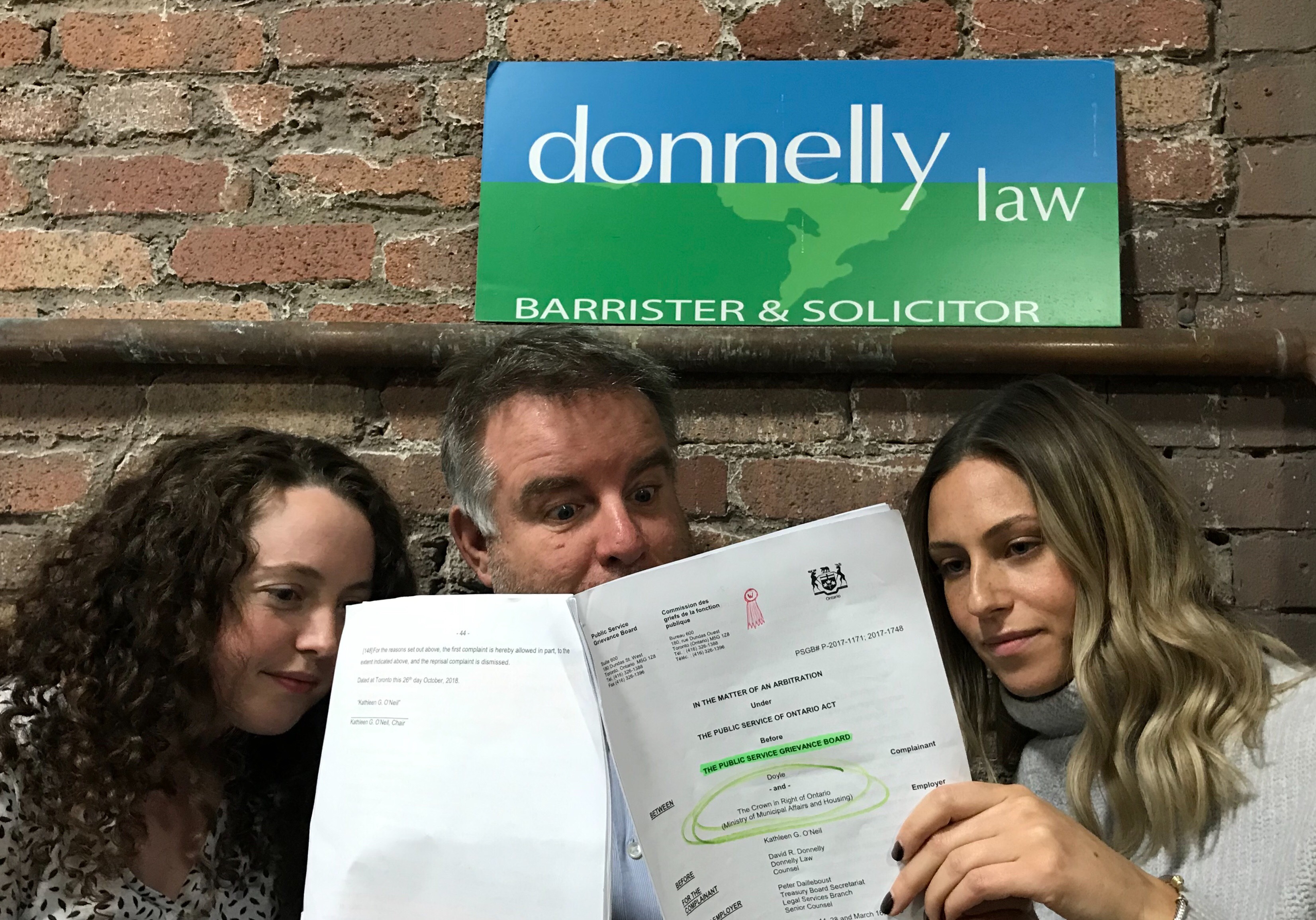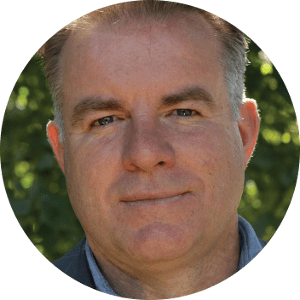Guest Blog by David Donnelly, Donnelly Law and counsel to Victor Doyle
Everyday our communities are influenced by professional urban planners. Yet planners are commonly pressured by Councils, developers and sometimes their employers to side with private interests over the public good. Planners make recommendations to government about where housing should go, and what areas should be protected, like where to expand the Greenbelt. Our communities depend on planners to get it right and to speak the truth, even if it comes with a price.

Just last year, an Ontario Civil Servant and the chief architect of the Greenbelt, Victor Doyle was disciplined and demoted for speaking out to the Globe and Mail about a “misleading campaign being waged by the development industry which blamed the province’s anti-sprawl policies for the Toronto area’s skyrocketing house prices.” This story was one that rocked civil servants and the environmental community alike.
But, this story comes with a surprising ending. Doyle won his important case against the Government of Ontario in a landmark ruling that professional planners speaking the truth, despite powerful push-back, is not a conflict of interest, and in fact, it is required by the profession.

It all started when Doyle publicly expressed his professional planning views regarding the development industry’s efforts to open up Simcoe County to more urban sprawl, and to undermine both the Greenbelt Plan and Growth Plan during the recent 10-year review.
In May 2017, Doyle released a paper entitled, “The Growth Plan and the Greenbelt – Setting the Record Straight” and gave an interview with the Globe and Mail. Doyle’s paper provided information that refuted misleading, selective and/or omitted facts by the development and building industry aimed at discrediting the Greenbelt and Growth Plans.
Shortly thereafter, Doyle received a letter from the Deputy Minister of the Ministry of Municipal Affairs stating that he had been found in conflict of interest. He was re-assigned to a virtually empty floor, separated from all other professional planners, and given no staff or access to the government database.
After 30 years at the epicentre of provincial planning, Ontario’s most senior growth management planner and “architect of the Greenbelt” had been silenced.
But that all changed last month when the Grievance Board cleared Doyle of any wrong doing. The government’s accusations against him were untrue – he did not violate government ethics, his actions were not a conflict of interest and he was unfairly disciplined for daring to speak out.
The vindication of Doyle goes beyond the facts of this case. There is an important principle at stake. We argued this principle focuses on the right and responsibility of professional planners in the Ontario Public Service to provide objective analysis and advice directly to decision-makers and the public, and the protection of their independence to do so – even if that advice challenges or differs with government’s favoured industries and contributors.
With the provincial government’s recent changes to the independent Office of the Environmental Commissioner, it is more important than ever that our civil servants and professionals like urban planners, scientists, and engineers are able to share freely data, research and analysis with our elected officials. Most importantly, this freedom must extend, in certain circumstances, to speaking to the public directly where the public interest is threatened by government activity.
The decision will hopefully help lift the “chill” cast on other professionals and civil servants who witnessed Doyle’s mistreatment for taking a stand. Because, now more than ever, we need professional civil servants to speak the truth, and stand up to those in powerful positions.








